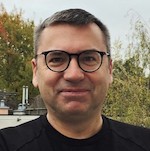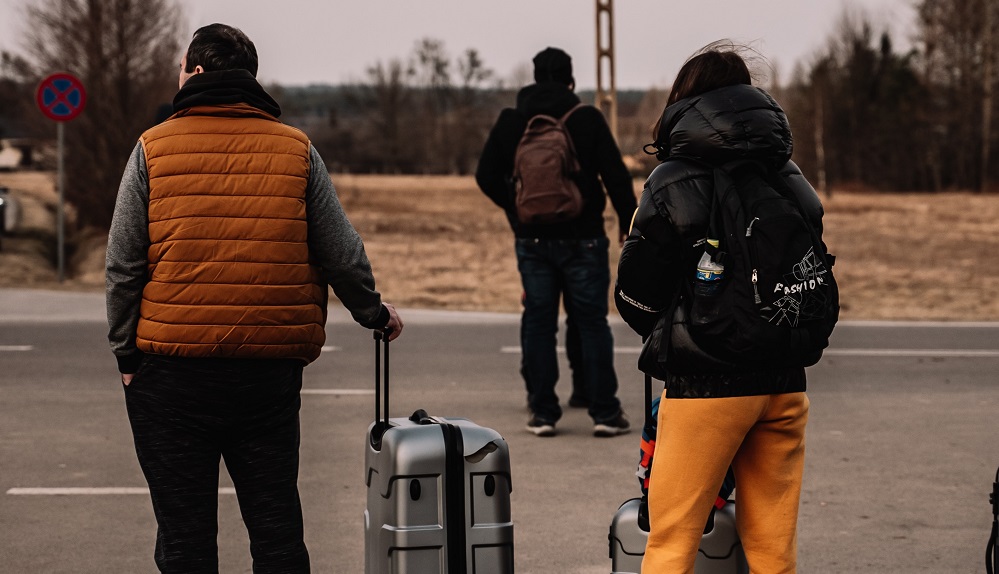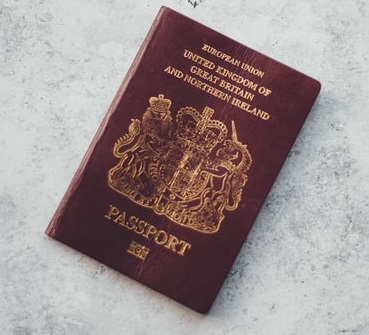A year on since Russia invaded Ukraine, we asked academics from different disciplines and backgrounds to share how they are addressing this conflict with students in classrooms in universities across the world.
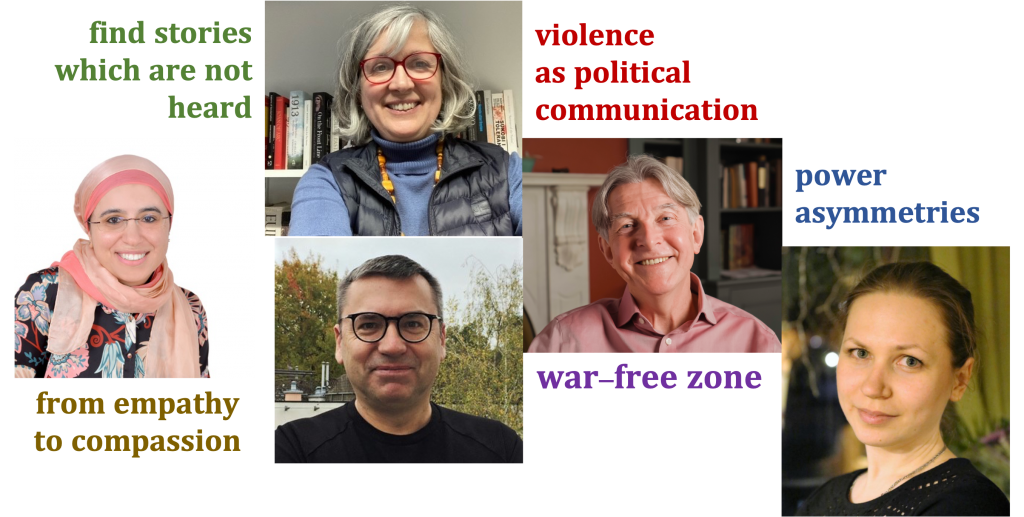
Moving on from a war-free zone
Rafal Towalski, Warsaw School of Economics, Poland
February marks the beginning of the new semester at the Warsaw School of Economics. Last year, unfortunately, it also marked the beginning of the war in Ukraine. I knew that I would be standing in front of a new cohort of mainly Polish students, but also Ukrainians, Belarussians, and Russians. Some of them would probably be confused, others frustrated, yet others full of fear. To make things worse, a week after the war started, bad news reached the university – one of our students had been killed in Kiev. I realised that conducting classes in such conditions would be a completely new experience and not an easy one.
I am not a person who can shut up in indignant silence, but nor was I ready to provide a reliable analysis. Therefore, I reached an arrangement with my students: I proposed to create a space free from discussions about the war in Ukraine. I am convinced the vast majority of students accepted the proposition. Over the next few months, we discussed many social problems typical for a general sociology course, avoiding the topic of the war.
Now, unfortunately, we have become accustomed to the ongoing conflict. I have been observing growing interest among students in the economic, political, and social consequences of the war in Ukraine. Some of the students’ projects examine the problem of Polish relations with the almost two million Ukrainian citizens who never planned to stay but have found a new home here. Other projects focus on how the war affects the labour market or on the economic costs of support and its impact on the social security system.
I strongly believe that one of the teacher’s responsibilities is to strengthen critical thinking. The war-free zone I created in the classroom was very helpful in avoiding hasty opinions and the risk of falling into extremes. But it has lost its significance currently. In my opinion, most of the students understand the complexity of the situation. This semester, it is easier, not only for me, but for my students too, to address the war in class.
Rafal Towalski is Assistant Professor at the Institute of Philosophy, Sociology and Economic Sociology, Warsaw School of Economics, Poland
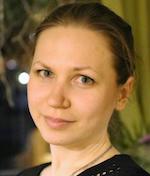 The context is defined by power asymmetries
The context is defined by power asymmetries
Volha Biziukova, Central European University, Austria
The full-scale war that broke out on 24 February last year has become a watershed moment that divided lives into before and after. First of all, for the people in Ukraine, who have to bear the immense suffering and destruction caused by the war, but also for the people in that region, from where I come. It is probably the significance of this event that made engagement with this topic particularly challenging in the context of an EU university. At least, this was my experience when I was teaching a graduate course on the politics of consumption, this winter semester 2022-23.
In the very first class, I mentioned some war-related examples, but at the same time, when it came to a more substantive discussion of this conflict, I felt that I did not address the issue in a satisfying way. I was almost automatically avoiding in-depth debate. To a great extent, this was related to my own positionality: I am a citizen of Belarus, the country with a Russian-backed dictatorial regime and the state co-aggressor in the war. Living in Austria, I joined anti-war demonstrations, participated in initiatives to help Ukrainians, and became involved in research projects related to the war. Being personally invested in these events, I was wary of becoming too emotional and losing the ability to moderate the situation in the classroom. While my class was rather diverse, there were a couple of students from Russia and other post-Soviet countries. I was concerned that in-depth discussion could get intense and, furthermore, unfairly single out students who, regardless of their personal position, might be called to answer for Russia’s actions. Reflecting on my experience, I realised that there is a tension between our roles as public citizens and teachers/students – there is a choice to participate in a public forum, but, in a classroom, everyone has to be present within the specific context defined by power asymmetries.
Volha Biziukova is Postdoctoral Fellow at the Central European University, Austria
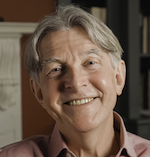 Terrorism is violence as political communication
Terrorism is violence as political communication
Conor Gearty, London School of Economics, UK
I teach terrorism law. One of my main themes is how little political violence is capable of being described as ‘terrorist’; in other words, how few people are killed and injured by subversive groups acting on their own against a state. This is especially true in relatively stable democracies in Europe and North America, yet these are exactly where most of the fuss is made. Such places have nearly forgotten what true conflict looks like.
Not any more. The Russian invasion of Ukraine has brutally reminded us of the devastation and human loss entailed in a real war. It dwarfs in one year decades of subversive terrorist activity. One of my main challenges over the years has been in showing my students how war is different from terrorism. Or, to put it more clearly, how terrorism properly understood (violence as a form of political communication) is just one of the many ways in which a war can be waged. The terrorist only ‘does’ terrorism; the state at war has a lot more killing mechanisms at its disposal. The Russian-Ukraine conflict exemplifies this: despite it being so obviously not a terrorist campaign of any sort, acts of terrorism as I define the term above do occur. The situation fits very well therefore with what I teach my class, namely that terrorism is a thing anyone can do (state or subversive) and is not what a person is (a member of this or that group simplicter, for example).
I frame the invasion of Ukraine alongside other long-standing examples in our course. Just like Russia, Israel can and does commit acts of terrorism in the context of a wider conflict in which it (unlike its weaker Palestinian opponents) can also do much else – aerial bombardment; sieges of urban centres; land invasions; and more. It was the same with the British forces in Ireland, though in modern times the deliberate use of the technique of terror has been quite rare in its case. Russia-Ukraine shows us in fresh and frighteningly direct ways how states can commit acts of terror without being terrorist.
And, of course, I have to be very mindful of where my students are from, especially the Ukrainians and Russians, but the wider group as well, Eastern Europeans, for example. It is a very difficult time for all of them. They have all engaged well and we have had no pressure or tensions that I have detected. Sadly, the war in Ukraine has been an excellent illustration of my (generally sceptical) approach to the ‘problem’ of terrorism.
Conor Gearty is Professor of Human Rights Law at the London School of Economics, UK
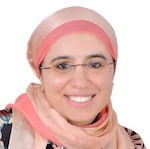 Helping students move from empathy to compassion
Helping students move from empathy to compassion
Maha Bali, the American University in Cairo, Egypt
I teach a course on digital literacies and intercultural learning at the American University in Cairo. Within that course, we discuss identity, empathy, bias, othering, and equity, among other things. My students are mostly Egyptian or Arab, and I noticed that they empathise more when we read about the suffering of other Arabs, such as Syrian refugees (in Lina Mounzer’s War in Translation). This unconscious bias is one we bring to the surface and discuss, as well as the notion of mirror neurons and that we’re more likely to empathise with people within our social group.
We also discuss the impact of media coverage on the degree to which we empathise with others. And so, when Russia invaded Ukraine, I brought it up in class, and asked them how they felt about the conflict. I was honestly expecting them to not have very strong opinions about the topic, and this was true for some of them. But then some started expressing empathy towards Ukraine and Ukrainian people, and explained what touched them and why.
In hindsight, I could have spent more time helping them move from empathy to compassion, to imagine how to convert the empathy in their feelings into compassionate action to make a difference in the suffering of others, even if this is outside the scope of my particular course. There were also opportunities, maybe, to make analogies with other conflicts between neighbouring countries with complex histories, such as Iraq and Kuwait, which is close to my heart as someone born and raised in Kuwait. We also could have discussed the potential role of cultivating empathy and compassion and equity literacy in nurturing critical citizens less likely to inflict violence on the “other”, although that would have been oversimplifying the issue.
Maha Bali is Professor of Practice at the Center for Learning and Teaching, the American University in Cairo, Egypt
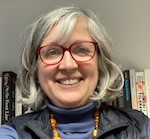
Seek out and find stories that are not heard
Vesna Popovski, London School of Economics, UK
The conflict in Ukraine has made me reflect again on how discussions about one’s own country are experienced in public forums. Coming from the former Yugoslavia, it makes me remember how painful it could be to discuss the war and its warring sides, and deliver accusations as well as blamelessness. And, more importantly, how nuances could be painful to digest. In the early 1990s, there was a tendency to see events as black or white, a trend predominant in the media and some academic circles. I feel that I experience it again (I have done fieldwork in Ukraine) with two differences: Ukraine is not my homeland and I have experiences I have been processing for the last 20 years.
What I try to bring into discussions with my students is the background to the conflict: to address the issues relating to authoritarian regimes and rulers and their understanding of the situation, which cannot always be explained in rational terms; to understand a journey towards democracy, but often with national overtones; to appreciate a complex history of one’s countries and the region, which cannot be relegated to the past; and to recognise the problems that arise when one cherry-picks events to suit a narrative. We all need to reflect on our own ideological understanding of the world around us, and how this understanding is a lens through which we see what is happening in our surroundings.
There is also an emotional dimension – which applies to all of us – which does not always allow us to see events clearly. In the present world, we need to think about how the media wants us to think about certain experiences, how it picks up certain stories. And therefore, in my classes, I encourage my students to seek out and find stories that are not heard. The last point relates to not allowing anyone to take one’s culture away. A lot of people, especially in Eastern Ukraine, are of Russian and Ukrainian origin or Russian-speaking Ukrainians; their belonging and culture cannot be defined by one man. We should not allow him to rob them of an important part of their identity.
Vesna Popovski is a Fellow in Conflict and Post-Conflict Studies at the European Institute, London School of Economics, UK
We would like to thank all our contributors for their reflections.
_______________________________________________________________________________________________________________________
This post is opinion-based and does not reflect the views of the London School of Economics and Political Science or any of its constituent departments and divisions.
_________________________________________________________________________________________________________________________


